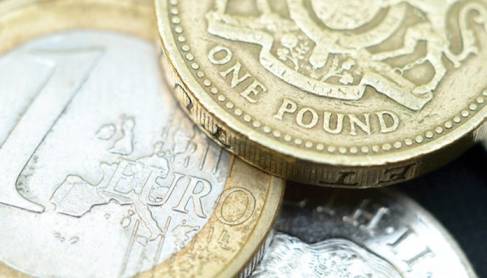In the United Kingdom, many of the people that have English as their first language have a hard time understanding what it means to refer to the currency as “pound” and “quid.” They might even say that the currency is called “pounds” or “quid.” In this article, we will explain the differences between the pound and quid, and what each of these terms mean.
Summary Table
| Pound | Quid |
| Official name for the currency of the United Kingdom. | Unofficial or slang word for pound. |
| The currency that is used in all of England. | Still used in some parts of the United Kingdom but not as common as it once was. |
| Worth 100 pence. | Also worth 100 pence. |
| Referred to as a “pound sterling” and was originally made up of 100% silver. | Sometimes used to make sure that someone is talking about money without anyone knowing what they are talking about. |
Definitions

The pound and quid are both terms that refer to the British currency. When the Romans came to England, they brought with them their own system of currency. They also brought with them the Roman monetary system that they used in their country. They referred to their currency as “sterling” which was the same term that they used for the measurement of silver. The sterling silver coins that were made during this time were called “solidi” and were made out of 100% silver.
As time went on, the English began to call these coins “sterlings” and by 1337, England had changed its monetary system from being based on silver to being based on gold. The first pound coin was created in 1279 and is still referred to as a “pound sterling” today even though it is no longer worth 1 pound in value. Over time, many different types of currency have been created using this term but they are all still considered pounds today even though some are worth less than others. In fact, today there are four different types of pounds that exist in England: The Pound Sterling (used for transactions), The Euro (used for transactions), The Pound Note (which is worth less than a pound sterling), and The Bank of England Note (which is worth less than a pound sterling).
Although the term “quid” is not used as much as it once was, it still exists in England today. In fact, some of the newer currency bills that are used today in England still refer to “quids” in their titles. These notes include the £5 note and the £10 note. However, most people have stopped using this term and now use pounds or quid to refer to their currency.
There are also many people who use this term when referring to money in general even though they do not have pounds or quids in their possession. It is still considered a slang term for money and it is usually used when someone wants to make sure that they are talking about money without anyone knowing what they are talking about. For example, if someone were talking about how much money they had saved up for something and they did not want anyone else to know how much they had saved up, they might say “I got a few quids saved up” instead of saying “I got a few pounds saved up” because it is easier for someone else to hear them saying “quids” than it is for them to hear them saying “pounds.”
Pound vs Quid
The pound is the term that refers to the official currency of England. It was originally based on a system of silver coins but today it is based on a system of gold coins. There are currently over 100 different notes that are used as part of this system. The highest value note is worth five pounds, while the lowest value note is worth one pound. This means that there are 100 different notes in circulation in England today, all of which are considered “pounds” in their value even though they have different values on them.
In most countries, the currency is referred to as the “pound” or the “pound sterling.” However, in Britain, it is referred to as the “quid.” It is unclear why this term was chosen, but some people believe that it was due to confusion between pound and quid.
In British slang, quid refers to a pound sterling. The term is short for “quid pro quo,” which is Latin for “something for something.”
There are some instances when it is acceptable to use the term “pound” instead of “quid.” If you are talking about the currency in the United Kingdom, then it is appropriate to use the term “pound.” However, if you are talking about currencies in other countries, then it is acceptable to use the term “quid.” For example, when a British person is in Jamaica, they would say that they have two pounds in their wallet. However, if they were in Canada, then they would say that they have two quids in their wallet.
One pound and one quid is equal to 100 pence. In US dollar terms, one pound and one quid is equal to $1.50. Therefore, a pound and a quid is essentially the same in terms of value.
In terms of phonetic pronunciation, the pound is pronounced “paund” and the quid is pronounced “quid.” The pound and quid are both derived from Latin, so they are similar in pronunciation to the words that they are derived from. You can also say “quid” like the letter “Q”, but with a long “I” sound.





